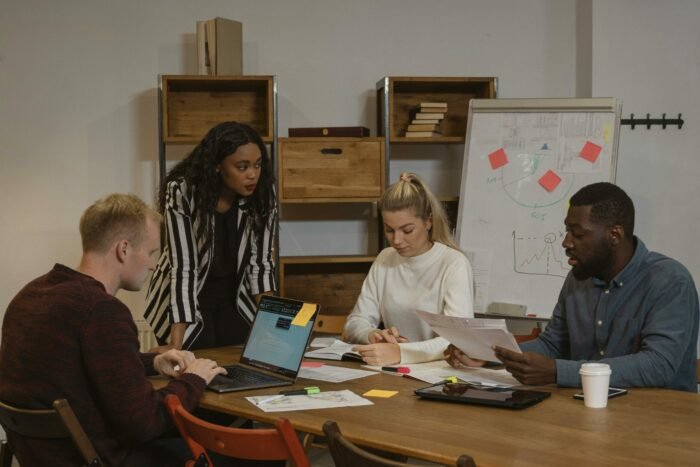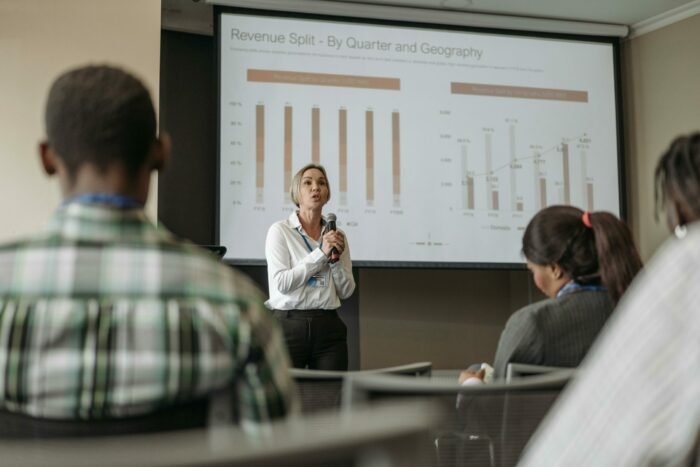Forming a team is no easy task rather it can take years of practice to be able to put together a team. Building a team requires great insight into the minds of people and understanding what makes them tick.
A leader alone cannot survive the different situations hurled at the organization but needs to tackle them along with their team too.
Teams are found in all spheres of life and not just in the workplace but they are a need in your family for organizing events, the local sports teams and more.
The art of team building requires a leader to take a bunch of people and turn them into a team as even if employees are allocated to work in a team, they may not feel like a team.
As a team builder, the essence lies in being able to understand people and what skills they are best at, then being able to use those skills for the better of the company at the designated time.
Research has continuously proven productivity to increase when employees work in teams in comparison employees working individually.
They also work best during highly stressful situations as within a team there are people with different competencies which can help in diffusing any situation.
This is the reason that more and more organizations have jumped on the bandwagon and shifted their work style to that of teams. However, not all organizations understand the amount of work which goes into building and maintain a team, thus the desired effect could be counterproductive.
Having a goal enables all team members to have a sense of direction and purpose which translates into them being productive.
Here are 8 great team-building skills you can build your team into a more cohesive, efficient unit:
1. Start with Yourself
Teams need their compass which ideally should be the leader who is aware of their leadership style and how they will manoeuvre the team. Self-awareness regarding your strengths and weaknesses will enable you to critically evaluate them and adjust accordingly to the dynamics of the team.
Simply being the one in charge does not guarantee your ways to be correct rather it is the knowledge that you can adapt and adjust which put you in the position of power in the first place.
Quite often, we might be leading a certain way but the team requires you to act different and this is where you should have the ability to change your manner of leading to build a team which is effective and efficient.
2. Know each Team Member
A team member shouldn’t be just a statistic for you and you should be on a first-name basis with them. The more you know about each team member the more you’ll know about their competencies which will enable you to use them effectively.
Understanding what each team member brings to the table will highlight their strengths and weaknesses knowing exactly how they fit with the team.
This knowledge is not only beneficial for the productivity of the teams but for the overall work culture which can be fostered with the different personalities of the team members.
3. Define the Roles of each Team Member
When you know your team members then you will be able to better define their specific roles. It is important to have clearly defined roles for each team member to avoid any confusion within the group. Some employees could be great mentors, whereas others don’t have the necessary skills.
The roles team members are allocated must also be reconciled with the roles they think and want to have for themselves. This is where most conflicts arise as there might be resentment in terms of how the different roles are distributed as no one wants to be allocated a role which is below their experience or qualifications or be burdened with roles which are outside their relevant skillset and experience.
It is a two-fold strategy, first, find what the team player is good at and then find a role which best compliments their skills.
4. Be Generous with Providing Feedback
Providing feedback is key to ensuring the team stays on track and don’t deviate from the desired route. However, feedback must be provided regularly and not given once the problem arises, as then it is too late for the utilization of the feedback.
The nature of feedback should also be constructive and not in the same vein as that of criticism, which would be counterproductive to the process.
5. Be Generous in Your Praises
Everyone likes a pat on the back and teams are no exceptions meaning the more one praises and acknowledges teams the more likely they will respond to the work of the team.
Positive feedback results in the team members not feeling them being taken for granted and feeling valued for the work performance they deliver.
6. Make Celebrations a Part of the Culture
Little achievements are often ignored and not celebrated which can lead the team feeling under-appreciated; however to foster a rewarding work culture all noteworthy achievements should be celebrated to allow reflection on the whole process.
Praising and celebrations are not the same but are often confused together which a major flaw is. Celebrations go beyond the notion of acknowledgement as they are a way of reinforcing the sense of achievement.
7. Encourage Relationships within the Team
Form relationships with each other and encourage the team members to form relationships with each other to not only be good colleagues but develop friendships that transcend the workspace.
This ensures a workspace which fosters healthy relationships that will ultimately reflect in the team’s productivity.
8. Ensure Discipline
Teams are made of different people, who belong to different backgrounds; they have widely different life experiences and are all essentially equipped with their values and goals.
To bind them together it is important to set the rules and ensure compliance with them. With a firm set of rules in place, the team members will also be able to operate in a safe environment and have a shared an understanding of the team’s values.
Do you want to Study a Team Building Skills Training Course?
Zoe Talent Solutions offers highly professional team-building skills training course which will enable you to build a high-performance team.
See Zoe Talent Solutions full management and leadership skills course list here: Management and Leadership Training Courses

















